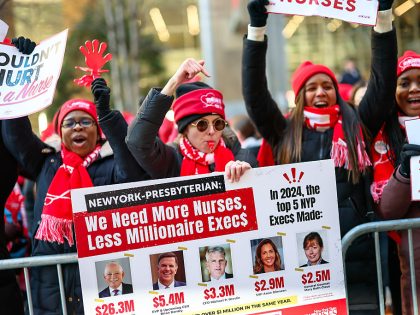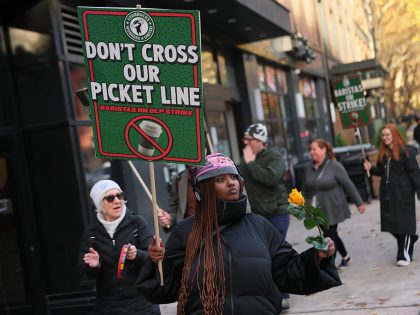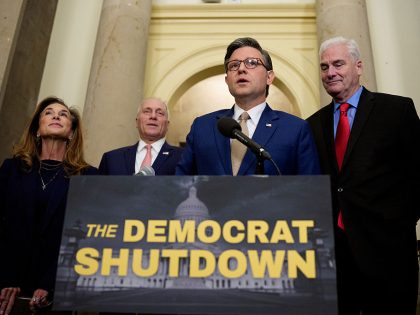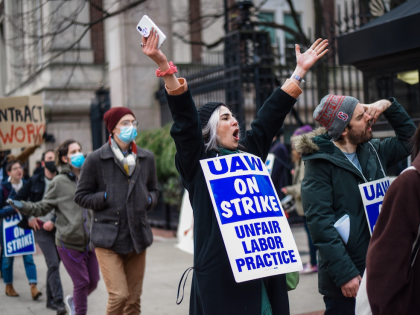
At NYC’s Richest Hospital, 4,200 Nurses Are Still on Strike
New York City nurses reached deals and ended their strikes at two hospitals last week. But at NewYork-Presbyterian, New York’s richest hospital, 4,200 nurses are still striking after overwhelmingly rejecting a proposed agreement.


















